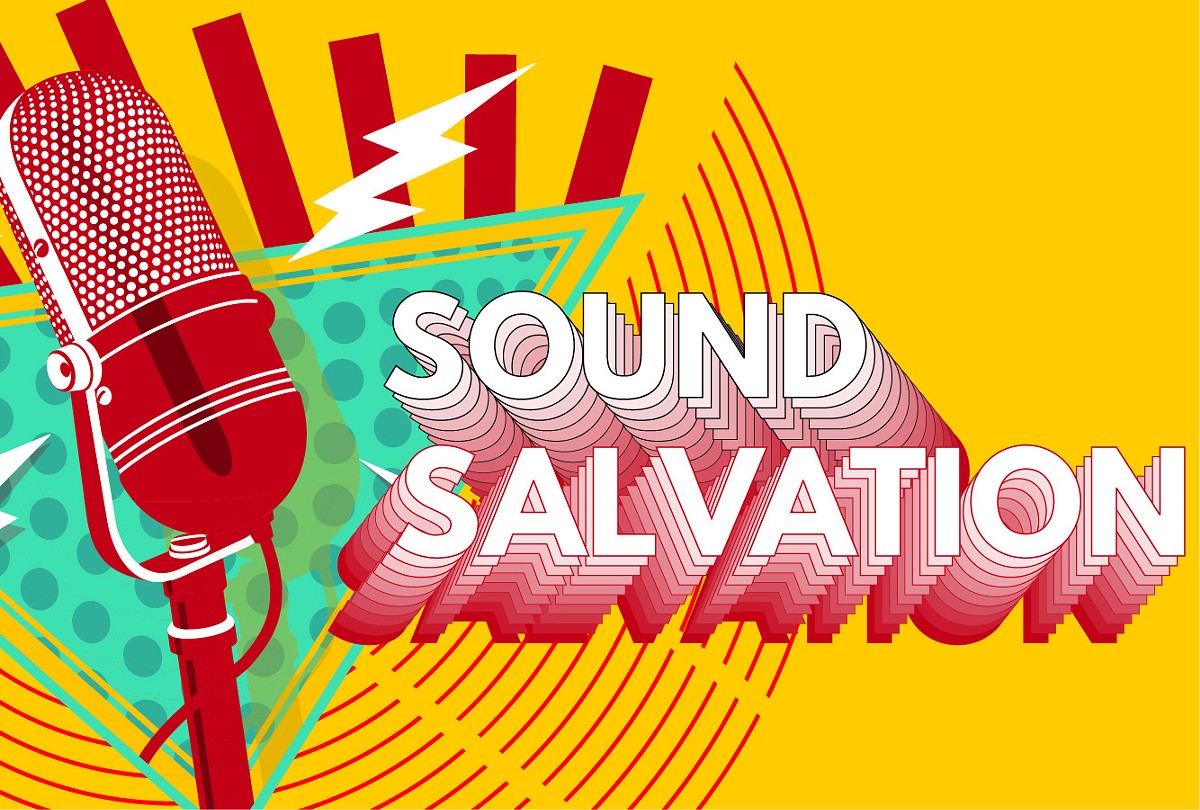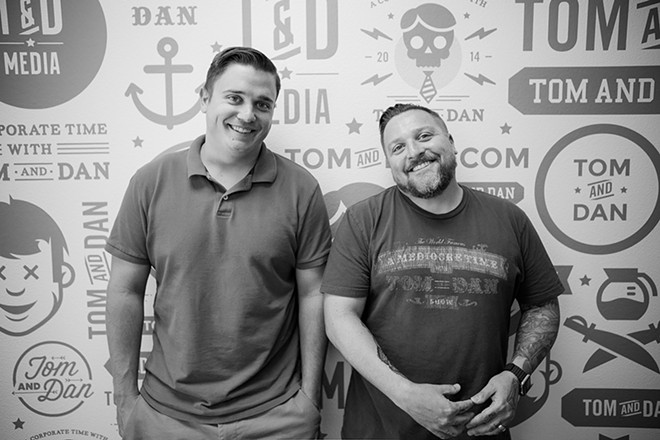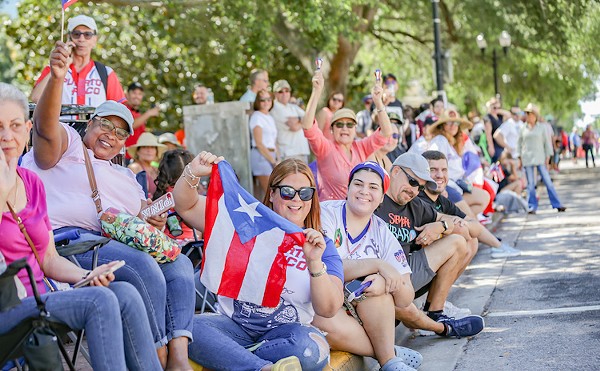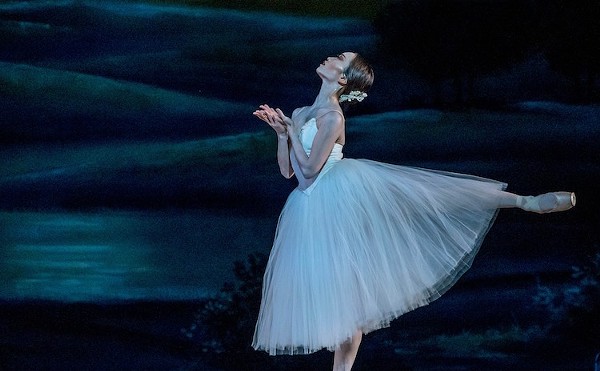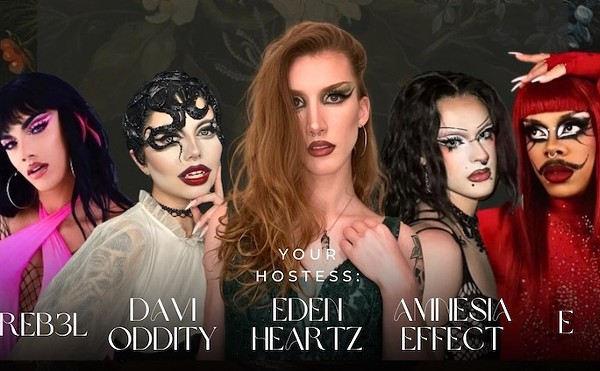Saying that someone has "a face for the radio" used to be an insult. But over the past seven years, independent podcasters revived a medium that had lost its allure due to shock jocks and overwrought advertising. Orlando's podcast scene is no exception, and there are plenty of independent local creatives fine-tuning the medium. Most of the city is familiar with scene heavyweight A Mediocre Time With Tom and Dan, but over the last few years the community has exploded, giving rise to dozens and dozens of worthwhile podcasts.
Many of the producers have some background in terrestrial radio or the audio industry, either from being in bands or having a cast member with professional training. All of them are committed to creating and broadcasting a quality show, whatever their focus may be, and they have a sincere love for their fans (and each other, most of the time).
For some, podcasting is a creative outlet that they work on out of sheer love of the craft, producing shows in home studios with self-funded equipment every week (and proudly sharing the results in their Facebook community, the very active Podcast Mafia). For others, podcasting has been a launching pad for other endeavors: Keep an eye out for The Nerdy Show's animated series Lightning Dogs and for What's the Fuss? Podcast's charity concerts. Ranging in topic from general news to bar banter to theme park gossip to geeking out, these are some of the podcasts we think deserve a closer listen.
A Mediocre Time With Tom and Dan
The big dogs of the Orlando podcast community, Tom Vann and Daniel Dennis got their start on WTKS 104.1-FM's terrestrial radio station before setting sail for the uncharted waters of podcasting in 2009. They are known for their improvisational back-and-forth, their commitment to their fans, and their fans' near-rabid commitment to them (we see you, BDMs!). Tom and Dan have assists from Ross McCoy and Samantha Haar, but for the most part what listeners hear is well-honed banter from years of working together. The cornerstone of their success was initially viewed as a weakness: Before starting the podcast, a radio traditionalist told Dennis that Tom and Dan would never survive because it only had two hosts. He was wrong.
So you were "Morning Zoo" guys on terrestrial radio. What drew you to podcasting?
Tom: After we did the radio show, Daniel and I used to just sit in the office sometimes and we'd have our interns in there and they'd be laughing and me and Daniel would just be fucking around. We said, "Hey, we should record this. I bet the listeners would like to hear this. And if we put it on the internet we can do it uncensored." Daniel already had the know-how to do all of the audio stuff. We decided we should do a podcast on Wednesday, and we started it that Friday after we got out of work.
Dan: We'd stop and get some beers, eat some lunch, about 2 p.m. was our 5 o'clock, so we'd start drinking and talk some shit.
T: And we never changed that because we realized in podcasting, consistency is key.
Did you dislike the terrestrial radio model?
D: We disliked the radio business and where it was going. Definitely not as fun as it used to be.
T: We liked the format, though, of talk radio. We always say this just is what we do, we talk about stuff and try to make it funny and see where it goes.
Would you ever go back to regular radio?
T: We would not. They'll never be able to pay us enough to go back.
D: The amount of money we make now is based directly on how hard we work, whereas what we made before was never based on that.
T: We now have job security because if the show fails, it's us. We can't get fired, that kind of thing.
D: I try to fire him.
T: If me and Daniel don't die, we're set. We even got insurance on each other to make sure that didn't happen.
D: But mine was REALLY expensive because I think I'm going soon.
T: We realized this is how we make a living, we should protect it. It's called key man insurance. So if either one of us goes, the other one can take care of the person's family, and buy the other family out and get money into the business to figure out if it could survive.
Ross McCoy: (Points to Tom) Yes, (points to Dan) no.
Episode to start with: Episode: "The most recent episode on tomanddan.com"
The Swervey Jones Show
A longtime talk radio fan, Swervey Jones started experimenting with podcasting around 2008. After a run of shows that didn't work out (including an entire podcast network that broadcast five shows a week) Jones hit his stride with The Swervey Jones Show in late 2015 after connecting with his co-host, audio engineer Trey Siwek. Jones is a hard worker who is as deeply invested in his own show as he is in the Orlando podcast community – he's known for listening to virtually every single local podcast when it airs and for animating Tom and Dan's Tom and Dan Toons! His show strives to present general conversation between Jones, Siwek and their guests in a way that's different from any other podcast in Orlando by seeking out the stories that no one else is talking about.
What's the focus of your podcast?
Swervey Jones: The main focus of the show is just general conversation. It's just things that we're into, things that have happened to us, little bits of things that happen in our life. We're a little nerdier than the other ones. I'll tend to ramble about comics and movies and stuff. The occasional story that pops up – and if we do a story, we try to go for something that we don't think anyone is going to talk about. I have this weird gift to get people to starting talking and open up, and I was like, "Talking's for me! I like doing it."
What do you think of the Orlando podcast scene and what are some of your favorite podcasts?
SJ: I think it's fantastic. The amount of love and promotion that everyone gives each other is unbelievable. I get to listen to pretty much all of them. I listen to Oh No Radio Show every week, I listen to BYOCB every week, I listen to all of the Tom and Dans, Burn It Down, Steezy's Trap House, What's the Fuss?, Tidbits, Cinema Crespodiso. All of them are my favorites.
What would you say sets you apart from some of the podcasts that are struggling?
SJ: It's networking. The shows that get out there and grind do better than the other podcasts that aren't out there grinding. Getting out there to events, talking to people, finding people who are into podcasts or at least interested in the idea so they might listen to a show or two.
Episode to start with: Episode 147: "Shaq's Grappling Hook"
What's the Fuss? Podcast
A talk radio–formatted show with punk-rock roots, What's the Fuss? Podcast (or W.T.F.P.) got its first boost in listeners after Ross McCoy from Tom and Dan teased them on-air for having a name that was eerily similar to a little podcast run by famous comedian Marc Maron. Over the course of his attempted mockery, Ross mentioned W.T.F.P. roughly 35 times, putting the show on the map for thousands of podcast fans in the Orlando area. The attention was well-deserved: hosts Rocky Socha, Steve Etchie and Bill Helveston put lots of love and care into their show and they're the only show we talked to that has a strong background with a local charity that gives back to the Orlando community at a grass-roots level.
What's your podcast's origin story?
Rocky Socha: I had a charity called Planks for Nothing and I'd give skateboards and clothing away to kids. I needed someone to help me, so I got Bill. We started dropping clothes off around Lake Eola before we even had a podcast. And I knew he was funny, and I knew Etchie was funny, but I was gonna start a podcast no matter what because I had all of this material written. I knew that I wasn't a comedian because none of my jokes were going to be funny in 10 minutes; they're funny this second.
Why did you have a charity to begin with?
RS: I was homeless; I was a runaway. The charity thing happened because I got out of it. I hated that people had to deal with that. I was embarrassed, I hated it, and I was like, "Fuck it, I'm going to work." And getting out of it and helping other people, it really helped the wounds and it got rid of the embarrassment. And skateboarding and punk rock saved me completely.
What's your main focus?
RS: Music, interviews and comedy. It's all pretty much comedy and then we have a lot of guests and bands that we're into. It's pretty centralized around punk rock and a little bit of politics, but we really try to stay out of it. And if we do get political, we'll make fun of EVERYBODY because there's so much to make fun of.
Bill Helveston: It's a local idea. We want to promote the city. The community and the podcast community, they've accepted us and pushed us further than we could've gone this soon. That was my whole idea about it: Take this show, use the platform and promote things in this city.
Episode to start with: Episode 34: "Fritzkrieg Bop"

